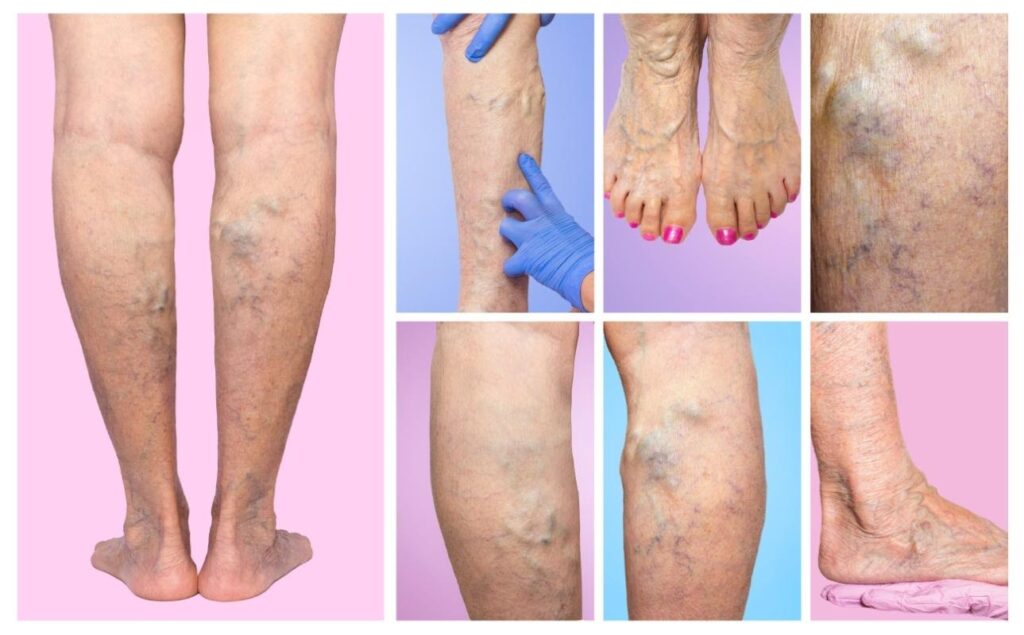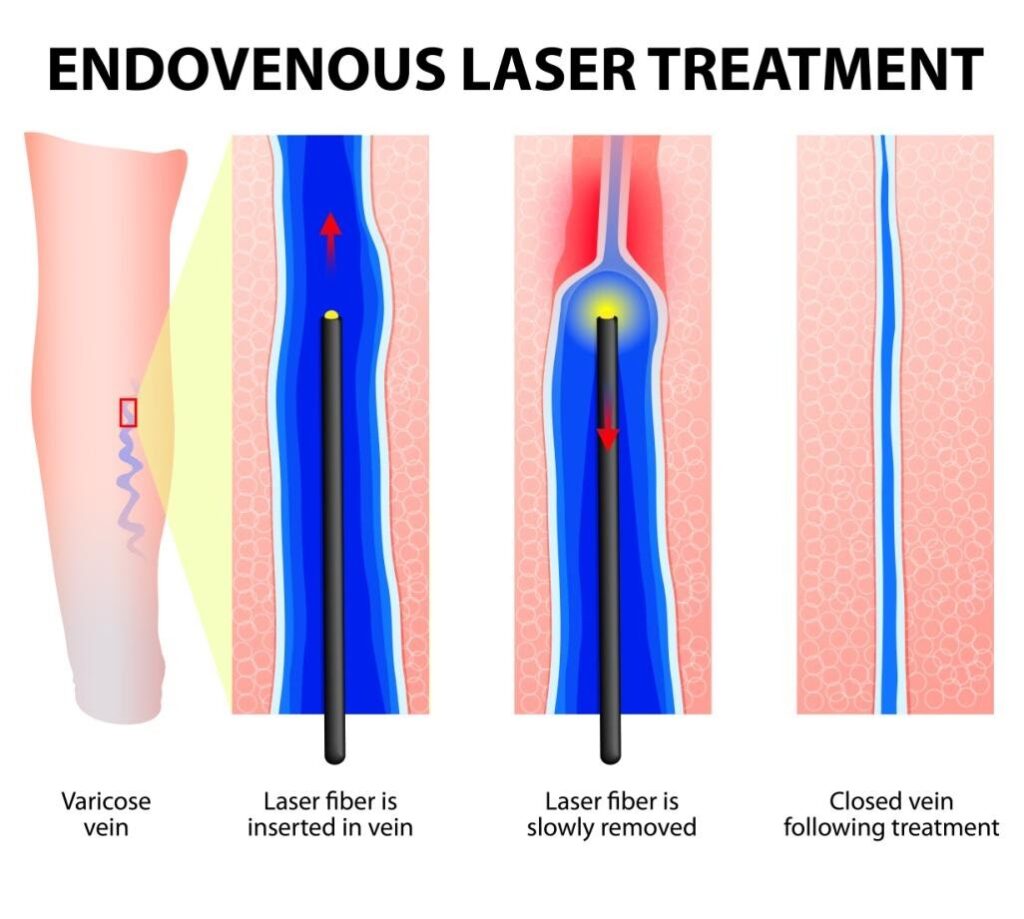Varicose Veins and Spider Veins
Varicose veins are tortuous, twisted, bulging, cord like (bluish/purple) veins. The varicose veins or spider veins are present in 10%–40% of people aged 30–70 years. This is very common disease and is more common in women but can also affect men. This disease has been neglected because most patients have mild complaints including leg heaviness/fatigue, aching, pruritus, edema/swelling, cosmetic embarrassment, and skin color changes. Few patients experience a more dreaded varicosity-related complication, such as lower limb ulceration.

Causes
Multiple pregnancies, genetic factors (hereditary), lifestyles or jobs that require standing for prolonged periods, put people at risk. Other risk factors are obesity, chronic cough and white race.
The main pathogenesis of varicose veins in lower limb is Venous Valvular Dysfunction.
Diagnosis
The disease is diagnosed and classified by physical examination and Doppler ultrasonography. Doppler ultrasonography has the ability to demonstrate venous hemodynamic reflux and allows Interventional Radiologists to identify the source of the varicose veins and develop a precise treatment plan. For complex morphology or unusual manifestations, the use of Doppler US combined with Computed Tomographic (CT) Venography can assist Interventional radiologists in determining the characteristics, the causes of varicosities and the treatment plan.
Treatment Options
Pinhole Procedures
- LASER Ablation
- Radio Frequency Ablation (RFA)
- Mechanochemical Endovenous Ablation (MOCA)
- VenaSeal vein Glue
Surgical Treatments – x
- Vein Ligation
- Vein striping
Interventional Pinhole Procedures
Advanced catheter based Endovenous treatments are available which effectively seal the leaking valves and eliminate the varicose veins without any surgery (striping/ligation). These procedures are done by an interventional radiologist. Who inserts a catheter into the varicose vein, Using ultrasound to see inside the patient, the doctor guides the catheter through the vein. A laser at the end of the catheter imparts a heat injury to the vein wall that causes an inflammatory reaction and closure of the incompetent vein. This causes blood to stop flowing through the vein.
The procedure, performed in an outpatient setting under either local or general anesthesia, usually takes one to two hours. Patients recover for approximately one hour and are discharged home. They are required to wear a compression dressing for two to three days. There is little or no postoperative pain, and patients are able and encouraged to walk immediately. Return to work and full activities are faster than with traditional ligation and stripping.
As the body recovers after the procedure, circulation becomes more efficient since blood is not flowing through a faulty vein and the problem vein shrinks and fades.


FAQs About Varicose Vein Treatment
Patients report feeling little, if any, pain during and after the procedure.
Patients are walking immediately following the procedure and typically resume normal activities within one day.
Many patients notice an immediate relief of symptoms such as pain, leg heaviness and fatigue. The full benefits of the procedure may take one to two weeks.
Patients report minimal to no scarring, bruising or swelling following the Closure procedure
During vein stripping, incisions are made in the groin and calf, and a stripper tool is threaded through the diseased vein to pull the vein out of the leg. With the Closure procedure, only one small incision is made at the insertion site and the vein is then closed and left in place. This minimally invasive approach eliminates pain and bruising associated with vein stripping surgery.
The Closure procedure treats diseased veins only, which are not appropriate for bypass surgery. Physicians can use other healthy vessels should bypass
surgery be necessary.
Most major health insurers cover the Closure procedure. Your physician can discuss your coverage further at the time of the consultation.
